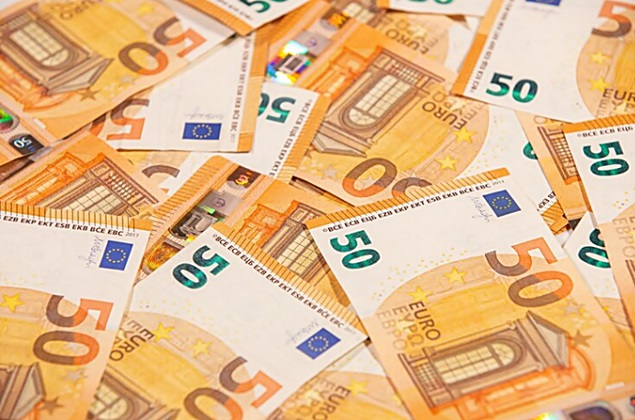1426

According to a statement transmitted to the Meat.Milk editorial team, the European Commission has proposed an annual EU budget of EUR 199.7 billion for 2025. The budget will be complemented by estimated payments of EUR 72 billion under the NextGenerationEU framework.
This substantial financial package aims to support the EU in achieving its policy priorities, while also integrating agreed changes from the mid-term review of the Multiannual Financial Framework (MFF) in February 2024.
The 2025 budget proposal directs funds where they can make the greatest impact, in cooperation with and according to the needs of EU member states and our partners worldwide, to make Europe more resilient and fit for the future, benefiting EU citizens and businesses.
This will be achieved by promoting green and digital transitions, creating jobs, while also strengthening Europe's strategic autonomy and global role. It will enable support for key essential technologies through the Strategic Technologies for Europe Platform (STEP).
The 2025 budget project will also provide continued support – in line with the mid-term review of the MFF – for Syrian refugees in Turkey and the wider South Neighbourhood, including the external dimension of migration, as well as the Western Balkans. Crucially, it will provide stable and predictable support to Ukraine.
The Commission proposes allocating the following amounts to various EU priorities (in commitments):
- EUR 53.8 billion for the Common Agricultural Policy and EUR 0.9 billion for the European Maritime, Fisheries, and Aquaculture Fund, supporting European farmers and fishermen, while also strengthening the resilience of agri-food sectors and fisheries and providing crisis management space.
Other allocations include:
- EUR 49.2 billion for regional development and cohesion to support economic, social, and territorial cohesion, as well as infrastructure supporting ecological transition and Union priority projects.
- EUR 16.3 billion to support our partners and interests globally, including EUR 10.9 billion under the Neighbourhood, Development, and International Cooperation Instrument – Global Europe (NDICI – Global Europe), EUR 2.2 billion for the Instrument for Pre-accession Assistance (IPA III), EUR 0.5 billion for the Western Balkans Investment Facility, and EUR 1.9 billion for Humanitarian Aid (HUMA).
- Another EUR 4.3 billion will be available in grants under the Ukraine Mechanism, complemented by loans of EUR 10.9 billion.
- EUR 13.5 billion for research and innovation, primarily EUR 12.7 billion for Horizon Europe, the Union's flagship research program. The budget project also includes funding for the European Chips Act under Horizon Europe and through redistribution from other programs.
- EUR 4.6 billion for European strategic investments, including EUR 2.8 billion for the Connecting Europe Facility to improve cross-border infrastructure, EUR 1.1 billion for the Digital Europe Programme to shape the Union's digital future, and EUR 378 million for InvestEU for key priorities (research and innovation, green and digital transition, health sector, and strategic technologies).
- EUR 2.1 billion for space-related expenditures, mainly for the European Space Programme, which will consolidate Union actions in this strategic area.
- EUR 11.8 billion for resilience and values, including EUR 5.2 billion for the increasing costs of loans under NextGenerationEU, EUR 4 billion for Erasmus+ to create education and mobility opportunities for people, EUR 352 million to support artists and creators in Europe, and EUR 235 million to promote justice, rights, and values.
- EUR 2.4 billion for environment and climate actions, primarily EUR 771 million for the LIFE program to support climate change mitigation and adaptation, and EUR 1.5 billion for the Just Transition Fund, ensuring that the ecological transition works for all.
- EUR 2.7 billion for protecting our borders, including EUR 1.4 billion for the Integrated Border Management Fund (IBMF) and EUR 997 million (EU total contribution) for the European Border and Coast Guard Agency (Frontex).
- EUR 2.1 billion for migration-related expenditures within the EU, primarily EUR 1.9 billion to support migrants and asylum seekers, in line with our values and priorities.
- EUR 1.8 billion to address defence challenges, including EUR 1.4 billion to support capacity development and research under the European Defence Fund (EDF), and EUR 244.5 million to support military mobility.
- EUR 977 million to ensure the functioning of the Single Market, including EUR 613 million for the Single Market Programme and EUR 205 million for activities related to fraud, taxation, and customs.
- EUR 583 million for EU4Health to ensure a comprehensive health response to people's needs, and EUR 203 million for the European Union Civil Protection Mechanism (rescEU) to enable rapid operational assistance in crisis situations.
- EUR 784 million for security, including EUR 334 million for the Internal Security Fund (ISF) to combat terrorism, radicalization, organized crime, and cybercrime.
- EUR 196 million for secure satellite connections under the Union's new Secure Connectivity Program.
The 2025 budget project is part of the Union's long-term budget as adopted at the end of 2020 and as amended in February 2024, including subsequent technical adjustments, aiming to translate its priorities into concrete annual outcomes.
The annual budget for 2025 will need to be officially adopted by the Budgetary Authority before the end of the year. (Photo: Freepik)





